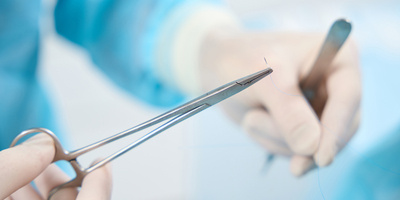
Stitching it Up: Can You Get Stitches at Urgent Care?
Urgent care clinics are designed to provide medical treatment for non-life-threatening injuries and...
Read moreHelp patients book appointments with you on Solv. It's free!
20 instant-book locations










No more surprise bills. Solv is committed to making getting healthcare as easy as buying groceries at the store, including knowing the price of care upfront.

No more surprise bills. Solv is committed to making getting healthcare as easy as buying groceries at the store, including knowing the price of care upfront.

No more surprise bills. Solv is committed to making getting healthcare as easy as buying groceries at the store, including knowing the price of care upfront.

No more surprise bills. Solv is committed to making getting healthcare as easy as buying groceries at the store, including knowing the price of care upfront.

No more surprise bills. Solv is committed to making getting healthcare as easy as buying groceries at the store, including knowing the price of care upfront.

No more surprise bills. Solv is committed to making getting healthcare as easy as buying groceries at the store, including knowing the price of care upfront.

No more surprise bills. Solv is committed to making getting healthcare as easy as buying groceries at the store, including knowing the price of care upfront.

No more surprise bills. Solv is committed to making getting healthcare as easy as buying groceries at the store, including knowing the price of care upfront.

No more surprise bills. Solv is committed to making getting healthcare as easy as buying groceries at the store, including knowing the price of care upfront.

No more surprise bills. Solv is committed to making getting healthcare as easy as buying groceries at the store, including knowing the price of care upfront.

No more surprise bills. Solv is committed to making getting healthcare as easy as buying groceries at the store, including knowing the price of care upfront.
Help patients book appointments with you on Solv. It's free!
Everyone who is sexually active should consider getting tested for STDs, especially those with multiple partners. Even if you use protection, it's possible to contract an STD. Regular testing is important for early detection and treatment, which can prevent serious health complications. According to the CDC, sexually active gay and bisexual men, pregnant women, and anyone who has unprotected sex with a person who has an STD should get tested regularly.
Getting tested for STDs is crucial for your health and the health of your partners. STDs often have no symptoms, so you could be infected and not know it. Early detection can help prevent serious health problems like infertility, cancer, and organ damage. It also helps prevent the spread of STDs to others. According to the CDC, regular STD testing is a basic part of staying healthy.
Urgent care and walk-in clinics are a convenient option for STD testing in Austin. They offer same-day and next-day appointments, which can be booked through Solv's website and mobile app. One highly rated clinic is Carbon Health Urgent Care, located at 3300 Bee Caves Rd, Austin, TX 78746.
Primary care providers are another option for STD testing. They can provide regular screenings as part of your annual check-up and can offer treatment or referrals if needed.
For those without insurance or with limited income, free STD testing is available at community health centers in Austin. These centers offer confidential testing and treatment, regardless of your ability to pay.
At-home testing is a private and convenient option. You can order a test online, collect a sample at home, and send it back for results. This option is ideal for those who prefer privacy or have difficulty accessing in-person services.
Austin, located in Travis County, has seen a rise in STD rates in recent years, mirroring a national trend. According to the CDC, the most common STDs in Austin are chlamydia, gonorrhea, and syphilis. The rates of these STDs are higher in Austin than in nearby counties like Hill County and McCulloch County. Factors contributing to these high rates could include a lack of awareness about STDs, limited access to testing and treatment, and stigma associated with STDs.
Risk factors for STDs in Austin include unprotected sex, multiple sexual partners, and drug use. Certain populations, such as young people and men who have sex with men, are particularly at risk. It's important to get tested regularly if you're at risk, and to use protection to prevent STDs.
Solv has strict sourcing guidelines and relies on peer-reviewed studies, academic research institutions, and medical associations. We avoid using tertiary references.
In a doctor's office, a health clinic, or an urgent care center, you can get an STD test. If you're experiencing symptoms, it's best to visit a doctor's office, where they can also treat you or issue you a prescription. While some Austin clinics and urgent care centers allow walk-in appointments, it's advisable to make an appointment ahead of time to prevent excessive waits.
Various testing are required for various STDs. Depending on the type of STD test you took, you may receive your results in two to ten days. Some outcomes may be immediately available. Your doctor may be able to diagnose an STD through a physical examination. In some cases, your doctor's office may only contact you if your test results are positive.
The cost of STD testing is governed by several factors, including where you are tested, the type of test you need, and if you have health insurance. Some Austin clinics may offer free testing or testing on a sliding scale based on your income. Because of the cost, don't put off obtaining an STD test. With your doctor's office, discuss the cost and payment choices. Delaying STD treatment may have catastrophic implications.
The cost of STD testing is governed by a number of factors, including the location of the test, the type of test required, and whether or not you have health insurance. Some clinics may provide free or sliding-scale testing, depending on your income. Don't let the expense of an STD test deter you from getting one. With your doctor's office, discuss the price and payment choices. Delaying STD treatment could have catastrophic ramifications.
There are around 20 different forms of STDs, each with its own set of diagnostic tests. No single test exists that can detect all types of STDs. Your doctor can help you figure out which tests you'll need. In STD testing, a blood sample or a urine sample may be used. Your doctor may also take a swab from the inside of your cheek, your vaginal area, or another potentially infected place.
Blood tests are used to diagnose hepatitis B, hepatitis C, herpes, HIV, and syphilis. In a laboratory, a technician examines a blood sample for antibodies that the body has produced in reaction to disease. The virus's DNA can also be detected by several blood tests. Remember that if you've recently been exposed to an STD and your body hasn't yet produced antibodies, you could test negative even if you have the disease.
Many Austin, TX urgent care providers offer same-day and next-day appointments, which you may book through Solv. To make healthcare more accessible to everyone, we collaborate with thousands of top-rated local providers. Our physician partners understand that waiting days, if not weeks, for an appointment isn't always the best option, and they share our commitment to simple, accessible health care.
To find a healthcare practitioner in your area, simply enter your location and search for "STD test" on our website. A list of providers and available appointments can be found on the following page. Choose the most convenient time and location for you. Make it clear that you've come for STD testing.
If you have a specific STD, inform your doctor so that the necessary test can be scheduled. Otherwise, they'll help you figure out which tests you'll need. The nurse or doctor simply needs a few minutes to get a blood sample, a urine sample, or a swab from the probable infection site.
Although there are several STD home tests available, not all of them are accurate. The accuracy of any STD test is determined by the quality of the sample taken. For home STD kits, a blood sample, a urine sample, or both are frequently required. Because doctors and nurses have more experience collecting samples, traditional in-office STD testing is the most accurate.
Chickenpox Vaccine in Austin
DOT Exam in Austin
Ear Wax Removal in Austin
Flu Shot in Austin
Hepatitis Vaccine in Austin
Measles Vaccine (MMR) in Austin
Physical Exam in Austin
Shingles Vaccine in Austin
Sports Physicals in Austin
Tetanus Shot in Austin
Typhoid Vaccine in Austin
Yellow Fever Vaccine in Austin
A1C Test in Austin
Allergy Testing in Austin
CMP Test in Austin
Diabetes Test in Austin
Diagnostic Test in Austin
Glucose Test in Austin
H Pylori Test in Austin
Hepatitis test in Austin
Lab Tests in Austin
Mono Test in Austin
Pregnancy Test in Austin
Pulmonary Function Test in Austin
RSV Test in Austin
STD Testing in Austin
Strep Test in Austin
TB Test in Austin
Thyroid Test in Austin
Vitamin D Test in Austin
Tips, advice, news—your resource to stay healthy and safe while improving your experience with healthcare providers when you need them.